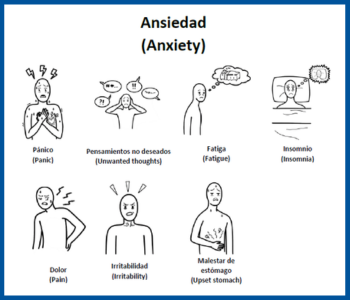The Duke Psychiatry Educational Seed Grant Program provides a financial foundation for trainee-led initiatives aiming to strengthen culturally responsive healthcare efforts within Duke, the local Durham community, and/or the field of psychiatry.

The Duke Psychiatry Residency program is committed to supporting excellence by encouraging residents to develop and implement novel ideas and initiatives that enhance the culture of inclusion and belonging within the field of psychiatry.
Successful seed grants may relate to any number of areas including, but not limited to, public and community psychiatry, rural psychiatry, forensic psychiatry, perinatal psychiatry, child and adolescent psychiatry, global mental health, LGBTQIA+ health, mental health stigma, patient advocacy and education, or workforce diversity. Proposals may include initiatives that primarily entail education, training, advocacy, research, or quality improvement.
This program is funded by the North Carolina Areas Health Education Centers (AHEC).
Development of an Interactive Resource for Mental Health Education and Prevention within the Latino Community
- Project lead: Andres Fuenmayor-Mago, MD
- Mentor: Andrew Tuck, MD
- Description: The goal of this project is to use a dynamic social media platform to empower the Latino community through evidence-based mental health education and awareness. By disseminating accurate information, combating stigma, and fostering strategies to build resilience and cope with life stressors, this initiative seeks to increase awareness, reduce stigma, and encourage timely mental health evaluation.
Dr. Fuenmayor-Mago received the 2024 James H. Carter, Sr. Community Service Award in recognition of his work in support of the Latino community, including this project.
Development of the Migrant Farmworker Mental Health Mobile Clinic Elective
- Project lead: Emily Aarons, MD and Andres Fuenmayor-Mago, MD
- Collaborators: Modjulie Moore, MD and Katy Sims, MD
- Mentor: Marvin Swartz, MD
- Description: This project aims to increase the provision of mental health assistance to migrant farmworkers in North Carolina during mobile clinic primary care visits. By integrating mental health support into existing primary care services and leveraging community partnerships, this project aims to make a meaningful and sustainable impact on the overall health and well-being of this population.
Dr. Aarons received the 2025 James H. Carter, Sr. Community Service Award in recognition of her work on this project.
2023-2024 Awardees
Implementation and Evaluation of a Visual Aid Tool to Support Spanish Speaking Patients in Mental Health Care Treatment
- Project lead(s): Jonathan Nahmias, MD
- Collaborators: Xiomara Nieves Alvarado, MD and Chisom Ezigbo
- Mentor: Tyson Pankey, PhD, MPH
2022-2023 Awardees
Utilization of NCCARE 360 Information and Referral System to Address Social Determinants of Health among Patients Treated on Duke Health’s Behavioral Health Inpatient Unit (BHIP)
- Project lead(s): Lynette Staplefoote-Boynton, MD, MPH
- Collaborators: Elena Tenenbaum, PhD, Akia Pittman, LCSW, Amy Conkling, LCSW
- Mentor: Leslie Bronner, MD, DrPH, MPH
The Diversity and Inclusion Podcast Series: An Educational Tool for Psychiatry Residents
- Project lead(s): Mountasir El-Tohami, MD and Jonathan Nahmias, MD
- Mentor: Terence Bethea, MD
Development of a Visual Aid Tool to Support Spanish Speaking Patients in Mental Health Care Treatment
- Project lead(s): Xiomara Nieves Alvarado, MD
- Collaborators: Jonathan Nahmias, MD, Chisom Ezigbo
- Mentor: Tyson Pankey, PhD, MPH
Integration of the Lay Mental Health Advocates Program within the Duke Regional Hospital Psychiatric Inpatient Unit (BHIP)
- Project Lead: Rick Wolthusen, MD, MPP
- Collaborators: Bruny Kenou, BS, Aiyana Ponce, BS, Jonathan Nahmias, MD
- Mentor: Allison Gilbert, PhD, MPH
Eligibility
All learners (i.e., residents, fellows, postdocs) in the Department of Psychiatry & Behavioral Sciences are eligible to apply. A learner must serve as the primary investigator (PI) for any funded project. Applicants may apply as individuals or with collaborators (collaborators may include individuals within and outside of Duke).
Funding
Seed grant awards may not exceed $2,000. The number of grants awarded will be determined by the overall competitiveness of the grant and the proposed budget. Residents must be in good standing within the residency training program at the time of submission and remain so throughout the project period. Funds may be revoked should this status change.
Proposal Submission Requirements
The proposal requires the following components:
- Project title
- Principal investigator (must be a Duke resident, fellow, or postdoc)
- Collaborator(s)
- Faculty mentor (must be a Duke employee)
- Proposal narrative (brief 100-word maximum abstract)
- Letter of support
- References
- Budget with justification
More details are provided on the proposal template.
Please submit your proposal to the residency administrative office (psychresoffice@duke.edu) using the submission template form.
Award Timeline
The program is not currently accepting proposals. Please check back in spring 2026!
Review Process
Applications will be reviewed by the Educational Seed Grant Program Selection Committee, which is comprised of residency and departmental leadership.
Reporting
Grant recipients must submit two written progress reports during the 12-month funding period. An interim report will be due by December 2025 and a final report will be due by June 2026. Recipients will also be expected to deliver a brief presentation to the residency community describing their project and outcomes (June 2026).
Contact
For questions about the Duke Psychiatry Educational Seed Grant Program, please contact associate program director Tyson Pankey, PhD, MPH (tyson.pankey@duke.edu).